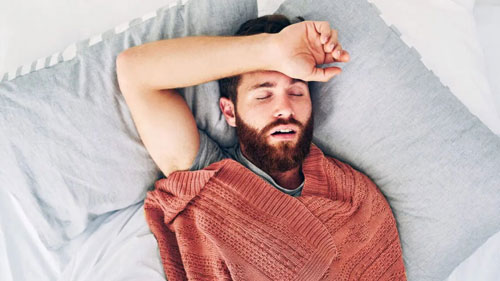The FDA has approved a device worn during the day that strengthens the tongue in an effort to reduce the snoring associated with mild sleep apnea. Experts note the device does not help people with moderate or severe sleep apnea.
However, they say any assistance for people with relatively minor snoring issues is welcome. If you strengthen your tongue, can you avoid having to use bulky equipment on your face to reduce snoring while you sleep?
Federal officials think there might be a way to do just that. The Food and Drug Administration (FDA) last week approvedTrusted Source a new daytime device for adults with mild sleep apnea that could eliminate the need for bulky CPAP (continuous positive airway pressure) equipment worn at night.
But the word “mild” is key, as sleep experts are skeptical the new “tongue strengthening device” will have much of an effect on anything beyond simple snoring. Nevertheless, the eXciteOSA is billed as “the first daytime therapy that tackles the root cause of sleep disordered breathing by physiologically retraining the airway against collapse.”
The device, which is being developed by Signifier Medical Technologies, is an electrical tongue muscle stimulator that works through a mouthpiece that sits on the tongue. The mouthpiece contains four electrodes that give a series of electrical impulses with rest in between. It’s used for 20 minutes once a day for 6 weeks, then once a week after the initial period.
“This is not likely to be a game changer,” Dr. Sujay Kansagra, the director of Duke University’s Pediatric Neurology Sleep Medicine Program and a sleep health expert for Mattress Firm, told Healthline. “Over the years, there have been numerous devices or techniques that claim to help with sleep apnea. Unfortunately, most are only partially effective and are not beneficial for moderate or severe sleep apnea. Similarly, it appears this device has only been tested on mild sleep apnea.” “We need more evidence,” Kansagra added. “We know that facial muscle testing can be beneficial. But with sleep apnea, the area of blockage can be in multiple areas, including with the nasal passages and the palate. So even if you strengthen the tongue, it may not necessarily help with sleep apnea, if the obstruction is occurring elsewhere.”










